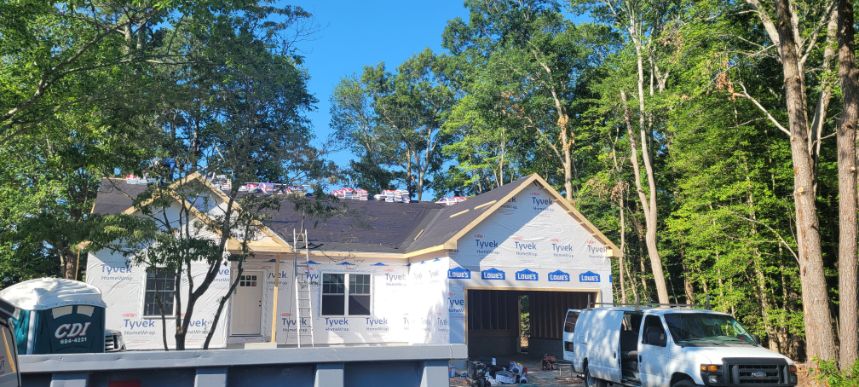
Here are some key things to know before breaking ground on your lot.
Building your dream home is a thrilling journey—but before you select paint swatches or floor plans, you need to ensure your lot is truly ready for construction. Preparing your property correctly saves time, reduces unexpected costs, and sets the stage for a smooth construction process. Here are some key things to know before breaking ground on your lot, along with how our expertise can help you avoid costly surprises.
Home Placement, Topography & Site Costs
It’s easy to focus on views, natural light, or curb appeal when deciding where to place your home—but placement affects more than just aesthetics. The elevation impacts drainage, grading, and ultimately, site development costs.
For example, positioning the home farther back can increase the length of driveways, utility runs, and excavation costs. Proper drainage is crucial for protecting your foundation in the long term. A thoughtful placement plan strikes a balance between beauty, functionality, and budget from the outset. Proper grading also avoids costly disputes.
Zoning, Setbacks & Environmental Factors
Before breaking ground, confirm that your lot’s zoning allows for residential construction. Review setback rules, easements, and any floodplain maps—especially for lots near creeks or low-lying areas. “Setbacks” are mandatory buffers from the front, side, and rear property lines. Flood zones can impact foundation design, insurance costs, and site work expenses. Checking these beforehand can save you from mid-project surprises.
Utilities
Utilities are a huge consideration when you’re breaking ground on a new construction home. If you are building in an existing development, this will likely be a relatively seamless process — the developers should have put everything in place and communicated with builders about it. If you are building on undeveloped land, the process becomes a bit more complicated.
Your builder should have knowledge and experience in this area. You can also contact your local agency to identify the location of utility lines and work with your builder to ensure they aren’t disturbed.
Test the Soil
The soil beneath your home plays a crucial role in determining its safety for years to come. The state of soil depends mainly on the region and is influenced by both weather conditions and past construction activities.
Loose soil may require additional foundation support to remain stable. Areas that experience excessive moisture may need preventative maintenance before construction. All of this is done to prevent cracks in your home’s foundation later on, which can be very expensive to repair.
Your soil test should be performed by a qualified soil engineer, who will take samples and evaluate the soil’s suitability for your home’s construction. Ideally, you should also test your soil during construction to make sure everything is holding up as expected.
Contact Accessible Home Builders Today
Here at Accessible Home Builders, we’re proud to say we’ve been building and remodeling homes since 1994. We’ve serviced Rehoboth Beach, Lewes, Selbyville, Millsboro, Georgetown, Laurel, and more communities within Delaware in that time. We work to guarantee a high level of professionalism, dedication, and the use of quality materials to ensure our customers have the homes they deserve.
To get in touch with us, give us a call at our office at 302-663-0464, send us an email at info@accessiblehomebuilders.com or visit us in person at 28412 DuPont Blvd, #103 Millsboro, DE 19966. Follow us on Facebook, Twitter, Linked In, and YouTube to stay updated on what we’re up to next!



